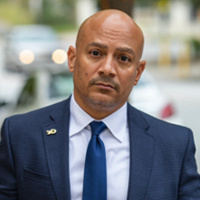 Goshen Felony Lawyers, New Hampshire
Goshen Felony Lawyers, New Hampshire
Not enough matches for Goshen Felony lawyer.
Below are all Goshen Criminal lawyers.
Sponsored Lawyers
1-10 of 29 matches
15 Constitution Drive
Bedford, NH 03110
Bankruptcy & Debt, Lawsuit & Dispute, Criminal, Accident & Injury, Business
Chuck Douglas is a practicing lawyer in the state of Georgia. He received his J.D. from Georgia State University. He currently works for his privately owned firm of Wakhisi-Douglas, LLC.
(more)
Criminal, Commercial Real Estate, Collection, Litigation, Real Estate
Military & Veterans Appeals, Other, Criminal, Constitutional Law
Nursing Home, Family Law, Divorce, White Collar Crime, Personal Injury





